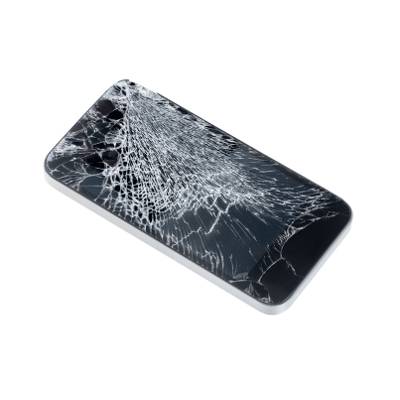 Have you ever noticed that your mobile device may run a little hot after a heavy day of use? In normal circumstances, a warm smartphone is no big deal. Although, on rare occasions, a perfectly good smartphone has gotten too hot and caught on fire!
Have you ever noticed that your mobile device may run a little hot after a heavy day of use? In normal circumstances, a warm smartphone is no big deal. Although, on rare occasions, a perfectly good smartphone has gotten too hot and caught on fire!
An incident like this happened just this week to a 13-year-old girl in North Texas. After a happy day spent with her Samsung Galaxy S4, the girl lay thee down to rest and plugged in her phone to charge it. Before she got a visit from Mr. Sandman, she placed the charging phone on her pillow, and this is where the story really heats up--literally, the phone melted. FOX 4 has her and her family's reaction:
The life lesson here is to never charge your mobile device in a cushy place that restricts airflow. This battery-charging tip may be news for you, but it's actually a best practice that's been around for a long time. In fact, Samsung has this warning clearly spelled out in the depths of their owner's manuals; you know, because the first thing every consumer-grade electronics user does upon purchasing a new device is to read every page of the thick owner's manual.
To be fair, out of the millions of mobile devices in use around the world, it's a rare occasion when one explodes or melts. Nevertheless, there's still a chance of this happening to you on the ol' possibility meter. This isn't the first exploding-cell-phone story that we've come across. Recently, a reddit user posted that their Galaxy S4 fried while charging, and the iPhone 4 made headlines after its release--for both its sleek new features and its tendency to catch on fire.
The incidents we've just mentioned are battery related, however, as manufacturers push the performance limits with their latests devices, we're seeing more electronics becoming increasingly-hotter to the touch. This is due to the demands placed on the SSD drive. In a study by Usenix HotStorage entitled Power, Energy and Thermal Condisderation in SSD-Based I/O Acceleration they "examined high-end SSDs, those with multiple channels, cores and flash chips," and it was determined that high-performance SSDs exhibit these four characteristics. As reported by ZDNet.com:
- High power. 2-7x the power, 282% higher for reads, up to 18w total.
- High temperatures. 150-210% higher than conventional SSDs, up to 182F.
- Performance throttling. At 180F the many-resource SSD throttles performance by 16%, equivalent to hitting the write cliff.
- Large write penalty. Writes at 64KB and above in aged devices caused the highest temperatures, likely due to extra garbage collection and wear leveling overhead.
By properly maintaining and using your mobile device, you will keep your gadget from melting, catching fire, exploding, or worse. Have you experienced any burns from a device running too hot? Are you guilty of sleeping with your charging smartphone on your pillow? Tell us your hot story in the comments!
